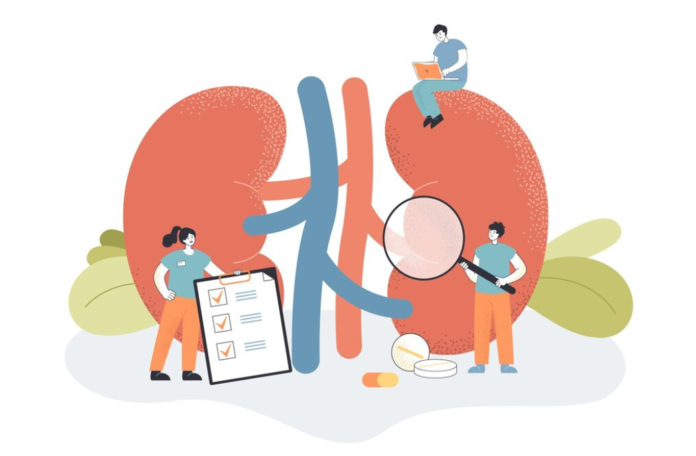Acute kidney injury (AKI) is a sudden decline in kidney function. It can lead to serious health issues if not addressed promptly. This article provides valuable insights from some of the best nephrologists in Dubai. Their expertise can help you understand and manage this condition effectively.
What is Acute Kidney Injury?
Acute kidney injury occurs when the kidneys suddenly lose their ability to filter waste products from the blood. This condition can develop rapidly, often within hours or days. The best kidney doctors emphasize that early detection and treatment are crucial for preventing long-term damage.
Causes of Acute Kidney Injury
Several factors can lead to acute kidney injury. The most common causes include:
- Dehydration: Severe dehydration can reduce blood flow to the kidneys, impairing their function.
- Infections: Infections can cause inflammation and damage to kidney tissues.
- Medications: Certain medications can be toxic to the kidneys, especially when used in high doses or over long periods.
- Obstructions: Blockages in the urinary tract can lead to a build-up of waste products, causing kidney injury.
To avoid AKI, the top kidney experts advise being aware of these reasons. Awareness and preventative actions can greatly decrease the danger.
Symptoms of Acute Kidney Injury
It’s critical to identify the signs of acute renal damage. An early intervention can have a big impact. Typical signs and symptoms include:
- Decreased Urine Output: A discernible decrease in the amount of urine generated.
- Swelling: Swelling around the eyes, ankles, and legs as a result of fluid retention.
- Fatigue: Severe exhaustion and trouble focusing.
- Shortness of Breath: Fluid build-up in the lungs can cause breathing difficulties.
- Nausea: Having a nauseous feeling and losing appetite.
The most skilled renal doctors emphasize how critical it is to get help if any of these symptoms appear.
Diagnosing Acute Kidney Injury
AKI diagnosis is made through a battery of examinations and tests. The following techniques are employed by top kidney doctors:
- Tests on the blood: To determine creatinine and other waste product levels.
- Tests on Urine: To look for anomalies that point to renal problems.
- Imaging: CT or ultrasound scans to find any blockages or structural problems.
- Biopsy: To ascertain the cause, a kidney biopsy may be required in certain circumstances.
The top renal nephrologist doctors can precisely determine the extent and source of the impairment with the aid of these diagnostic technologies.
Treatment Options for Acute Kidney Injury
Supporting kidney function and addressing the underlying cause are key components of treating acute renal damage. The following treatment options are outlined by the top kidney doctors:
- Electrolytes and Fluids: Restoring electrolyte imbalances and replenishing lost fluids.
- Medication: Changing or stopping prescription drugs that might be harmful.
- Dialysis: To remove waste from the blood in extreme circumstances, dialysis may be required.
- Lifestyle Modifications: Adjusting nutrition and controlling hydration intake to aid in healing.
The top nephrologist experts stress the need for customized treatment regimens for efficient care.
Preventing Acute Kidney Injury
It’s always preferable to prevent than to cure. The top kidney doctors provide the following advice to avoid acute kidney injury:
- Keep Yourself Hydrated: Consume lots of water, particularly during the summer or while you’re sick.
- Watch Medication: Talk to your doctor about any concerns you may have regarding the possible effects of certain medications on your kidneys.
- Handle Chronic Conditions: Take good care of ailments including high blood pressure and diabetes.
- Steer clear of Toxins: Reduce your exposure to anything that can damage your kidneys, like toxins and some drugs.
You can lower your chance of acquiring AKI greatly by adhering to these preventive actions.
Recovery and Long-Term Management
Acute kidney injury recovery necessitates continued attention and observation. The top kidney specialists advise:
- Routine Check-ups: Periodic visits to track kidney function and identify any problems early.
- Healthy Lifestyle: Steer clear of tobacco and heavy alcohol use, exercise frequently, and maintain a balanced diet.
- Medication Management: Manage your medications and stay away from those that could damage your kidneys by consulting your doctor frequently.
- Education: Keep yourself updated on kidney health issues and preventative measures.
Long-term management and vigilance are key to preventing future episodes of AKI and maintaining overall kidney health.
Lifestyle Adjustments for Better Kidney Health
Lifestyle modifications can have a major effect on kidney health. The top kidney doctors advise the following adjustments:
- Healthy Diet: A diet that is healthy for the kidneys is essential. Reducing intake of sodium, potassium, and phosphorus is frequently necessary for this. Consuming a range of fruits, vegetables, nutritious grains, and lean meats helps support good health. Personalized dietary advice can be obtained by speaking with a dietician who specializes in renal health.
- Regular Exercise: Maintaining a healthy weight and blood pressure is essential for kidney health and can be achieved through physical activity. On most days of the week, try to get in at least 30 minutes of moderate activity. Exercises like swimming, cycling, and walking are great options.
- Hydration: Maintaining adequate hydration is essential for kidney function. Every day, make sure you consume enough water but try not to consume too much, especially if your nephrologist advises against it. The finest kidney specialists stress the significance of keeping a balance that meets your medical requirements.
- Avoiding Smoking and Excessive Alcohol: Both smoking and binge drinking can harm your kidneys and make pre-existing diseases worse. You can lessen the burden on your kidneys and enhance your general health by giving up smoking and drinking less alcohol.
When to See a Nephrologist
If you have risk factors or exhibit signs of acute renal injury, you should consult a nephrologist, one of the greatest kidney experts. Nephrologists can offer skilled care and are specialists in kidney health. To properly manage and prevent kidney disorders, they provide specific therapies and monitoring

